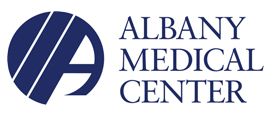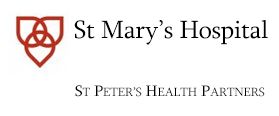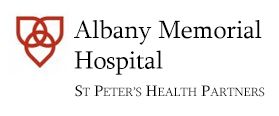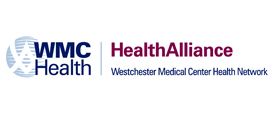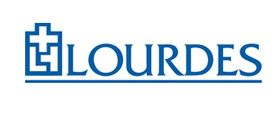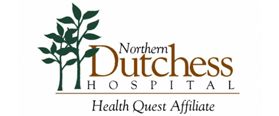What We Do
While the majority of our patients are in the pediatric age group, our care spans from prenatal evaluations of the fetus to ongoing follow-up of adults with congenital heart disease.
We realize that coming to our office can be a stressful experience. Our goal is to help every patient and family to understand their diagnosis and have all of their concerns addressed. We are always available for your questions both during and after your visit.
The types of problems that we manage are quite diverse. Fortunately, the vast majority of concerns can be diagnosed and treated on an outpatient basis.
For those patients with more complex disease, we provide full time 24/7 inpatient coverage as part of the Department of Pediatrics at Albany Medical Center, where our inpatient Congenital Heart Program.
At our office, we provide new and follow-up consultations. In addition to taking a detailed history and performing a thorough physical examination, we may perform electrocardiograms (ECG) and trans-thoracic (or fetal) echocardiograms.
For some patients, additional outpatient testing is arranged, including chest-x-ray, event monitors, Holter monitors, cardiac MRI, and exercise stress testing. Inpatient and emergency department care includes consultations, diagnostic and interventional catheterizations, trans-esophageal echocardiograms, and close collaboration with Dr. Neil Devejian, who leads Pediatric Cardiac Surgery at Albany Medical Center.
Our Services
We provide comprehensive services for the evaluation, diagnosis, and management including, but not limited to, the following:
Heart Murmurs
Congenital Heart Disease
Chest Pain
Syncope
Arrhythmias
Hypertension
Lipid and Cholesterol Issues
Fetal Cardiology
Acquired Heart Disease in Children
Myocarditis
Cardiac Issues in Marfan Syndrome
Cardiac Issues in Down syndrome
Evaluation and Management of Cardiac Issues
Full range of diagnostic and interventional cardiac catheterizations

Fetal Echocardiography
Fetal echocardiography is a safe, noninvasive ultrasound procedure performed during pregnancy that enables the cardiologist to assess the structure, function and heart rhythm of the fetal heart. Ultrasound uses sound waves to take pictures of the fetal heart. There is no radiation exposure and no known risk with this type of test. Fetal echocardiography can help detect fetal heart abnormalities before birth, allowing for faster medical or surgical intervention once the baby is born.
Fetal echocardiograms are usually performed in the second trimester of pregnancy, at about 18-24 weeks. The test is done in a dimly lit room while the patient is lying on an exam table. It is painless and takes 20 to 45 minutes. It is fine for a family member to stay in the room during the test. Gel is applied to the ultrasound transducer and it is positioned over the abdomen to create the images. During the test the transducer probe will be moved around to obtain images of different locations and structures of the fetal heart.
Today, most congenital heart defects can be diagnosed before birth. Some heart problems may require immediate attention before or after delivery. Information obtained from the fetal echocardiogram can influence where your baby is delivered. Knowing about a potential heart problem prior to delivery gives the family a chance to prepare for the challenges they may face. Recognizing the difficulty of taking in the complicated new information, we allow dedicated time with the fetal cardiologist to explain the findings and answer questions. If the cardiologist identifies a heart problem, our team works with the family and obstetrician to develop a plan of care, including options for delivery. When appropriate, we also facilitate a consultation with the cardiothoracic surgeon, Dr. Devejian, to discuss surgical options and outcomes. We can also arrange an opportunity to meet other members of the pediatric cardiac team, as needed.
Indications in which a fetal echocardiogram may be necessary include, but are not limited to, the following:
- The obstetrician has identified a potential cardiac abnormality on routine prenatal ultrasound
- Sibling was born with a congenital (present at birth) heart defect
- family history of congenital heart disease (such as parents, aunts or uncles, or grandparents)
- Chromosomal or genetic abnormality discovered in the fetus
- Mother has taken certain medications that may cause congenital heart defects
- Mother has diabetes, phenylketonuria, or a connective tissue disease such as lupus
- Mother has had rubella during pregnancy
- Routine prenatal ultrasound has discovered possible non-heart or heart abnormalities
Outpatient & Hospital
Testing
Outpatient
The first office visit, or consultation, is usually made upon the recommendation from your child's doctor. The consultation includes a thorough history and cardiac examination and any tests that the cardiologist feels that are necessary such as electrocardiogram (ECG), or echocardiogram. The cardiologist will spend time with you and your child in the office explaining the diagnosis and answering your questions. Sometimes no treatment or follow-up is needed. In other cases, understanding a heart problem in your child is a difficult and trying task. Please be assured that the cardiologist will spend as much time as is necessary to answer your questions. If a repeat visit is recommended, an appointment can usually be arranged before leaving the office. Your cardiologist will write a comprehensive report and send it to your child's primary doctor. We often have Albany Medical College students and residents participating in the evaluation.
An ECG records the electrical activity of the heart on graph paper. It is usually done prior to seeing your cardiologist. It gives information about the rhythm of the heart, the size of the chambers of the heart and the amount of blood going to the heart muscle itself. An ECG is a painless test and takes only a few minutes to complete. It is performed by placing small sensors (electrodes) on the patient’s chest, wrists, and ankles. The most accurate ECG is obtained while the patient is lying quietly on the examination table.
An echo is a non-invasive, painless ultrasound test useful to visualize the anatomy and function of the heart. The test is performed with the patient lying on an exam table. Sometimes, babies can be kept in their parent's arms. An echocardiogram machine is a computer that uses a hand-held probe, or transducer, with a gel-like substance placed over the patient’s heart. The transducer sends and receives sound waves creating a moving picture of the heart, which is viewed on a television screen. This enables us to look at the actual structure of the heart and identify any holes or valve abnormalities and assess how well the heart is functioning. To improve the quality of the picture on the screen, the echocardiogram is done in a dimly lit room. We offer movies that your child can watch to distract them during the test. An echocardiogram lasts approximately 15 to 30 minutes. Parents may remain with their child during the test.
An event monitor is a small device used to record abnormalities of the heart's rate or rhythm. It is used when a patient’s symptoms occur infrequently. It is the size of a beeper or iPod. The device will be mailed to your home after your visit. It is carried with the patient in a bag or pocket and when symptoms occur it is placed on the chest for 30-60 seconds. The device records the ECG pattern, which is eventually transmitted to us by phone. An event monitor is used at home for one month.
This is a small probe that is wrapped around a finger or toe to measure the oxygen saturation of a patient’s blood. It is painless and easy to use.
Hospital
A Holter monitor is a portable device that enables an EKG to be recorded for 24 hours. Four electrodes are placed on the chest and attached to a pager-sized monitor that records the heartbeat. The monitor is worn on a belt or shoulder strap. The patient performs their normal day-to-day activities, except getting the device wet, and is asked to keep a diary to note activities and symptoms that may be noticed during the recording. After the recording is complete, the device is returned to the hospital where a computer scans it and a report is printed.
An exercise stress test is used to assess cardiac performance during exercise. It is done in a hospital room equipped with a treadmill, EKG and blood pressure monitoring equipment. The patient’s cardiologist and a technologist monitor your child while they walk/run on a treadmill. To prepare for the stress test, your child should eat a light meal two hours before coming to the hospital and wear comfortable clothing and athletic shoes. The doctor and technologist will continue to monitor your child for several minutes after the test. When the test is completed, the patient can eat, drink and resume normal activities, including returning to school.
A transesophageal echocardiogram is done in a sedated patient by passing a small transducer into the mouth and down the esophagus (the long tube-like structure connecting the mouth to the stomach). The TEE allows visualization of the anatomy and function of the heart in greater detail than the traditional transthoracic echocardiogram. This is also used during most heart surgeries and some interventional catheterizations.
Dr. Randall is the only fellowship-trained congenital interventional cardiologist in the Capital District. He performs all congenital catheterizations at Albany Medical Center. Utilizing catheters and devices, he and his team are able to perform a wide variety of interventions to occlude holes in the heart, make narrowed portions of the heart larger with balloons or stents, or provide a wide variety of other interventions on patients, from newborn babies in the neonatal intensive care unit to adults with congenital heart disease.
FAQs
A pediatric cardiologist is a pediatrician with specialty training. A pediatric cardiologist has received extensive training in diagnosing and treating cardiac problems in children. Evaluation and treatment may begin with the fetus since heart problems can now be detected before birth and continue well into adulthood as more and more patients are thriving with congenital heart disease as adults. A pediatric cardiologist is trained to perform and interpret procedures such as electrocardiograms, echocardiograms, chest-x-rays, and exercise stress tests. In cases of more significant heart disease, a pediatric cardiologist may perform a cardiac catheterization in order to diagnose or treat the cardiac problem. If the child needs surgery, the pediatric cardiologist and pediatric cardiac surgeon work together in planning cardiac surgery and in post-operative care.
The need for a referral depends on your insurance. We can work with you to ensure that you obtain one from your insurance company. For questions please call 518-489-3292.
Yes, we require parents or guardian with the appropriate documents to accompany all patients under the age of 18.
No special preparation is required for noninvasive diagnostic testing.
Typically, visits last up to 2 hours depending on what, if any, testing is required. Electrocardiograms, consults and exams are done routinely. In most instances, additional testing such as a chest x-ray and/or echocardiogram is required.
The timeliness of the results depends on the test performed. You will get results from the physician immediately when an electrocardiogram or an echocardiogram is done.
A letter and report of findings will be sent to your physician for all new visits and follow up visits.
Hospitals & Privileges
Capital District Pediatric Cardiology Associates has privileges and/or provides services at the following hospitals:
